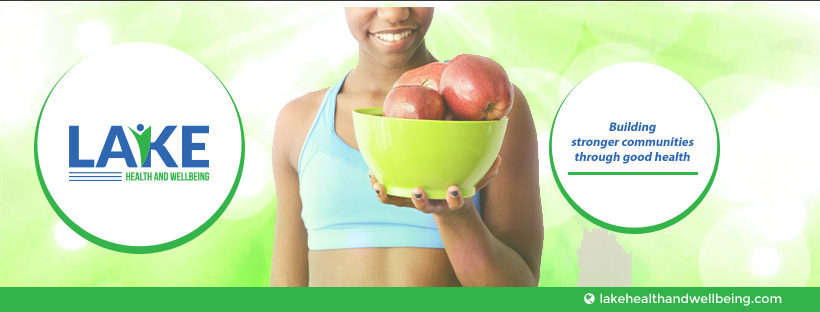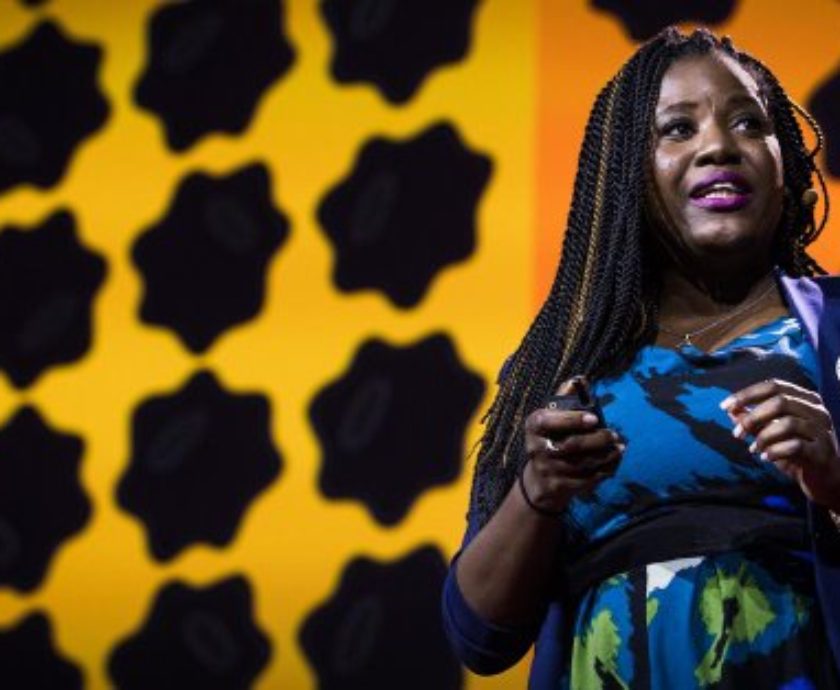On 21st February we were delighted to host another fibroids Twitter chat. Our featured guest was Laterria Patton.
Laterria Patton is a Self Care Activist who writes a food blog that promotes reproductive health to black women. The blog content utilizes natural self-healing food practices to educate black women who are suffering with reproductive health problems about the hormonal process, and how to keep it in balance.
During our chat we had an interesting discussion with Laterria about the common challenges that contribute to uterine disorders (like fibroids), how these challenges can be overcome and how women can achieve optimal uterine health through self-healing food practices.
If you missed our Twitter chat, have no fear, you can read the highlights below.
Hey, hello, hello, Twitter family, it’s our my pleasure to welcome you to another one of our #fibroids #Twitter chats. #FibroidsChat (1/4)
— Lake Health and Wellbeing (@TheLakeFound) February 21, 2018
Today we’ll be chatting to, Self-Care Activist, @selfcareandfood, about some of the factors that lead to uterine (womb) disorders, like #fibroids, how these can be addressed and how women can achieve good womb health through self-healing food practices. #FibroidsChat (2/4)
— Lake Health and Wellbeing (@TheLakeFound) February 21, 2018
Hello! My name is Laterria Patton.
I’m a Self Care Activist that promotes social change that is centered around the self care practices of black women. One of the ways that I do this work is by writing a food blog that promotes reproductive health to black women. #FibroidsChat— Laterria Patton (@selfcareandfood) February 21, 2018
.@selfcareandfood Can you tell us a bit more about your blog and why you started it? #fibroidschat
— Lake Health and Wellbeing (@TheLakeFound) February 21, 2018
1/2 I started this blog because I wanted to create content that breaks down the different ways in which food is impacting our hormones and how these hormones are having a negative or positive effect on the health of our reproductive organs.
— Laterria Patton (@selfcareandfood) February 21, 2018
2/2 I use natural self-healing food practices to teach black women who are suffering with reproductive health issues about their hormonal processes and how to keep them in balance.
— Laterria Patton (@selfcareandfood) February 21, 2018
. @selfcareandfood What has been the most interesting and the most surprising things that you’ve learnt since delving into this area? #fibroidschat
— Lake Health and Wellbeing (@TheLakeFound) February 21, 2018
The most surprising thing that I learned since delving in this area is that many obstacles are strategically being put into place that make it hard for black women to get access to the information & food that could help them with their reproductive health issues. #FibroidsChat
— Laterria Patton (@selfcareandfood) February 21, 2018
That is quite surprising, let’s explore that further. What sort of obstacles have been put in place? #fibroidschat
— Lake Health and Wellbeing (@TheLakeFound) February 21, 2018
Some of the obstacles are:
1) Food desserts
2) Bias Physicians
3) Lack of family support— Laterria Patton (@selfcareandfood) February 21, 2018
We’ll come back to some of these. We should start at the beginning, your work centres on understanding the link between the liver & the uterus. Can you tell us how the health of a woman’s liver affects the health of her uterus, and how this could lead to disorders like fibroids?
— Lake Health and Wellbeing (@TheLakeFound) February 21, 2018
1/4 The health of a women’s uterus is affected by the health of her liver because the liver produces the cells that help to create neurons in the brain. These same neurons use cells to send messages from the brain to the uterus.#FibroidsChat
— Laterria Patton (@selfcareandfood) February 21, 2018
2/4 These messages control the rhythm in which the uterine muscles contract & relax so that the uterus knows when to shed the lining(menstrual bleeding) & when not to. An unhealthy liver has a negative effect on the neuron’s ability to communicate messages. #FibroidsChat
— Laterria Patton (@selfcareandfood) February 21, 2018
3/4 When uterus begins to shed it’s menstrual lining at the wrong time or it doesn’t shed as much as it’s suppose to, the excess lining that stays in the uterus contains hormones that never got a chance to leave the body. #FibroidsChat
— Laterria Patton (@selfcareandfood) February 21, 2018
4/4 Too many hormones can cause the uterus to make abnormal cells that contain excessive amounts of estrogen and progesterone. Abnormal cells lead to various disorders within the uterus. #FibroidsChat
— Laterria Patton (@selfcareandfood) February 21, 2018
.@selfcareandfood You write a lot about healing through food. So, let’s explore food a bit, how does the food we eat affect the health of our liver and thus the uterus? #fibroidschat
— Lake Health and Wellbeing (@TheLakeFound) February 21, 2018
1/2 The liver is a highly dependent upon nutrients to function properly. There are 4 things that can hinder the absorption of nutrients in the liver:
1) Processed foods
2)Toxins
3) Bioavailability
4) Long-term medication usage— Laterria Patton (@selfcareandfood) February 21, 2018
2/2 When the liver is not being nourished with nutrients, it can not make the cells that communicate with the neurons that are controlling the functions of the uterus.#FibroidsChat
— Laterria Patton (@selfcareandfood) February 21, 2018
1/3 One way that we can improve our reproductive health is by minimize the amount of grains that we are consuming. Many people who want to eat healthier tend to fill their plates up with grains. Grains are healthy BUT overconsuming grains can be counterproductive because:
— Laterria Patton (@selfcareandfood) February 21, 2018
2/3
1) Most commercially produced products like bread, still contain the anti-nutrients that prevent us from absorbing the nutrients in grains.
2) Eating large amounts of grains daily can cause the pancreas to produce too much of a hormone called insulin.#FibroidsChat— Laterria Patton (@selfcareandfood) February 21, 2018
3/3 3) Some grains like wheat are processed. When your liver gets too busy breaking down processed foods, it doesn’t have time to metabolize your hormones, which causes excessive amounts of hormones to be thrown your bloodstream. #FibroidsChat
— Laterria Patton (@selfcareandfood) February 21, 2018
Ok, that is interesting, so really we should be eating grains in moderation #fibroidschat
— Lake Health and Wellbeing (@TheLakeFound) February 21, 2018
Absolutely. Small portions are fine. If you eat bread, try making you own at home so that you can ferment the grain so that the anti-nutrients are ineffective. #FibroidsChat
— Laterria Patton (@selfcareandfood) February 21, 2018
What are the best foods for a healthy uterus, @selfcareandfood?
#fibroidschat— Lake Health and Wellbeing (@TheLakeFound) February 21, 2018
1/2 The foods that are the most beneficial to our uterine health are all types of whole foods. Eating a variety of whole foods regularly improves the bioavailbility of the liver because the liver requires some nutrients to be paired in order to improve absorption. #FibroidsChat
— Laterria Patton (@selfcareandfood) February 21, 2018
2/2 For example, black pepper improves the absorption of turmeric. Plus, the liver has the ability to heal it’s with the help of various nutrients. Healing the liver can improve upon the health of the uterus. #FibroidsChat
— Laterria Patton (@selfcareandfood) February 21, 2018
.Do you have any diet tips or advice you can share for women who already have fibroids? Would the advice be the same? #fibroidschat
— Lake Health and Wellbeing (@TheLakeFound) February 21, 2018
1/2 I would advise anyone who is already suffering with fibroids to minimize processed foods, drink less caffeine, eliminate alcohol and opt for natural healing remedies instead medication(if possible) for 3 months. #FibroidsChat
— Laterria Patton (@selfcareandfood) February 21, 2018
2/2 This gives the liver the time that it needs to create new cells that can repair tissue damage or congestion in the liver. This can help to heal minor uterine issues, minimize symptoms or prevent new uterine issues from reoccurring after a uterine surgery #FibroidsChat
— Laterria Patton (@selfcareandfood) February 21, 2018
The most common concern that I hear about reproductive health is “Should I try to heal an reproductive ailment naturally or with surgery?” I think it depends on the severity of the problem. You need to see a physician to know exactly how minor/urgent the problem is #FibroidsChat
— Laterria Patton (@selfcareandfood) February 21, 2018
Yes, we hear that a lot too.. Many women would prefer more natural approaches to addressing their reproductive health issues #fibroidschat
— Lake Health and Wellbeing (@TheLakeFound) February 21, 2018
1/2 #FibroidsChat One of the BEST things that anyone can do outside of eating healthy food to promote their uterine health is to start gardening. Start growing small plants in doors until you feel more confident into growing your own TOXIC-FREE produce.
This is why:
— Laterria Patton (@selfcareandfood) February 21, 2018
2/2
1) Plants will eliminate toxins in your house.
2) There are establishments that are paying for you NOT to have access to foods that keep you from filling up pharmaceutical companies pockets.
3) It will save you $ on produce because organic food is beyond high😂 #FibroidsChat— Laterria Patton (@selfcareandfood) February 21, 2018
If you’re looking for natural self-healing food practices that will help you balance your hormones in order to promote a healthy reproductive system, check out my blog>> https://t.co/RL0VFVdLyj
To contact me email me at Laterriapatton@gmail.com#FibroidsChat pic.twitter.com/tlxdv4EfWK
— Laterria Patton (@selfcareandfood) February 21, 2018
A big thank you to everyone who joined us for this #fibroidschat we hope you found it useful! We really did #fibroidschat
— Lake Health and Wellbeing (@TheLakeFound) February 21, 2018











